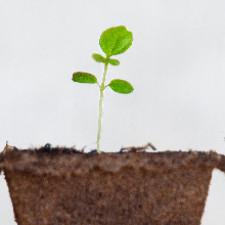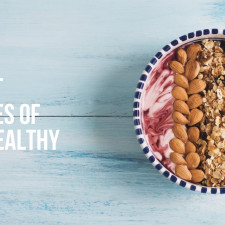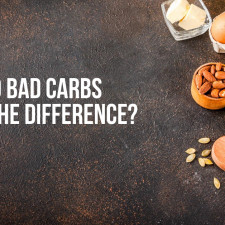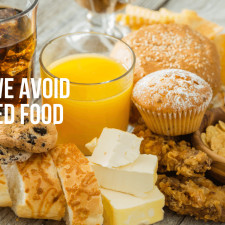How to change your relationship with food
If you’re on Instagram, you know it’s filled with perfectly photoshopped photos of someone’s salad, smoothie bowl, their “Keto lunch,” “Cheat day” meal, or whatever is trendy right now. But how you ever think about the fact is that every one of us interpret those pictures in a very different way?
For example, someone who is looking to lose weight, this person may think, “*Holy st! That must be tons of calories**”; ‘followers’ might be cracking their brains by trying to remake it…
Someone like me who is following Ultimate Portion Fix - I wonder what the container count is; while a busy super-mom may be shaking her head wondering, “How the hell do you have time to prepare it?”
Whatever may be going through your head is a good indicator of your relationship with food. A healthy attitude towards food and healthy eating habits are crucial to achieving your weight loss and weight-management goals.
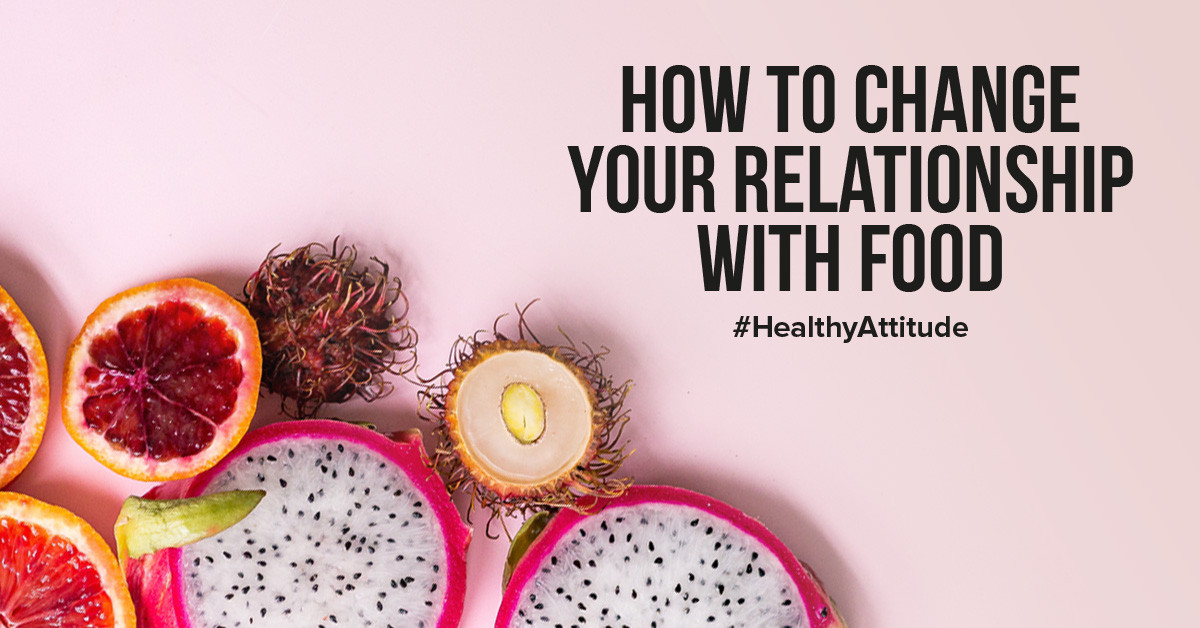
Here are a few traits of people who have mastered this attitude:
1. They eat food for fuel and health, not to “deal with” emotions
People with a healthy relationship to food see food as a fuel that nourishes their body, allowing them to power through workouts; keeps their body and brain in tip-top shape.
They understand that food isn’t a cure for sadness, boredom, stress, anxiety, or loneliness.
*Interesting fact: Whether you ‘over-eat’ or ‘under-eat’ - you will gain weight.
2. They eat according to their goals
I like to use the example of babies. Babies eat when they are hungry and stop eating when they are satisfied. How come that we, as adults, let outside influences to rule over our eating habits?
How often did you give in and ate when you weren’t hungry? Or you had a case of “fake hunger” and devoured everything in sight? How did it make you feel? Guilty? Are you disgusted with yourself? You need to ask yourself “What is my goal” and adapt your eating habits to achieve that goal.
I use the Beachbody Portion-Control Containers. It is a simple and sustainable lifestyle. There are seven colored containers (each color represents a food group). It shows you how balanced eating looks like without counting calories or your macros. This “program” helps you portion out exactly the right amount of food, so you never eat too much or too little. It also helps you to ‘eat on a schedule,’ so your metabolism keeps burning.
Interesting fact: The less frequently you are eating during your day - the slower your metabolism will become. Hence, no weight loss.
Majority of my clients had the idea that the less they eat - the skinnier they become. I was shocked! And horrified! Many of them ate only once a day (it was a huge meal, but still!!).
’Starvation diet’ is definitely a no-no in my world. Starvation diets have far-reaching adverse effects on the body. Starving to lose weight changes the metabolism, reduces lean muscle, reduces bone density, and decreases strength. Is it worth it? Absolutely not!
Interesting fact: Whether you have a lot of body fat, or none - ‘skinny fat’ is real. It’s simple: if it juggles - its fat.
When you find yourself in these moments, a little guidance can help you to develop a healthy relationship with food.
The key is to understand your body’s signals and then respond to those cues without feelings of guilt or judgment. Ultimately it will lead to a more positive body image, far less eating disorders, and increased possibilities of taking on other healthy lifestyle habits (I’ll tell you about those in the next blog).
3. They don’t allow food to control their lives
“I must go and try that new pizza place”….. “Oh, McDonald's has a new burger. We must go and try it!” Have you ever said that? Who hasn’t? People with a healthy relationship to food don’t obsess about food to the point where it obstructs their everyday life.
On the other hand, if you are declining invitations to events because you are anxious about you overindulging on bar food or bottomless booze. You know you are in deep trouble (with food)
4. They don’t “make up” for an imperfect eating day
I call the “cheat day” my “treat day” because I do treat myself. Mindfully, of course. On this day, usually a Thursday, I take my time to fully enjoy my treats (French truffle fries, a slice of Pistachio Mille Crêpes cake and a glass of Guinness Draught). Yum!
5. They don’t compare their body or what they eat to others
We are all unique in body, mind, and spirit. Hence, our bodies are not meant to look like one another, and we are not all supposed to look like supermodels or superheroes. Even the supermodels don’t look like supermodels in real life.
My heart breaks whenever I meet a new client, and she shows me an Instagram picture of some ‘fitness-model’ (heavily photoshopped), and she says: “This is how I want to look like!” Nobody is THAT perfect!
What I strive for is a robust and healthy body with confidence that lights up others as well. Being fit is a feeling. A feeling of happiness, gratitude, at least for me. But it may mean something else for you, and that's ok!
How does one know if their relationship to food is wobbly?
Well, if these sound familiar to you, you have some work to do:
- You are almost always dieting (or attempting to);
- You get anxious and frustrated when your weight goes up (and there you go ‘on a diet’ again);
- You go to the gym only because you ate something “bad” the day before (instead of working on a healthy and fit body);
- You eat only “diet” foods;
- You skip out on social events because you worry about a large amount of food you will consume (and yet at home you eat the whole pantry);
- You associate food with emotion (stress, boredom, happiness, sadness, etc.) then feel guilty afterward.
It is a never-ending vicious circle. You feel something, and you ravish everything in sight (or don’t eat at all), then your diet. These constant yo-yo diets inflict damages on your metabolism and your mental health. And that will hinder any weight-loss goals. Even worse, it can lead to some severe eating disorders.
There is no ‘instant insight and realization’
A mental shift won’t happen overnight. It took you some time to get to that place, so it will take some time to get out of it. You can start by being aware when you find yourself in one of these negative behaviors (please, be honest with yourself). Baby steps like understanding the triggers of your emotional eating will guide you out that vicious circle.
Will you fall off the wagon? Yes, you will! But guess what? As long as you don’t make it a habit - there will be progress. And even slow progress is progress (there is always something positive you can focus on).
When you can easily skip a date with the gym to meet your spouse at a bar, or enjoy a few potato chips without agonizing, you might devour the whole bag. You know your relationship with food has entered a whole new level.
“No matter how long you have traveled in the wrong direction, you can always turn around”
The choice is yours and yours only!
Also read: Is healthy food really expensive?
-
Marcela CmarkovaLifestyleCoachingUS$ 1,56 pm
-
Lucia G OnievaLife Strategy CoachUS$ 1,46 pm
-
Kim CurrieHealth and wellnessUS$ 0,83 pm
-
Rose Marie NelsonLife CoachUS$ 2,50 pm
-
Jose W.Digital marketingUS$ 2,83 pm
-
Rey KetenLife Coach & MentorUS$ 0,91 pm












